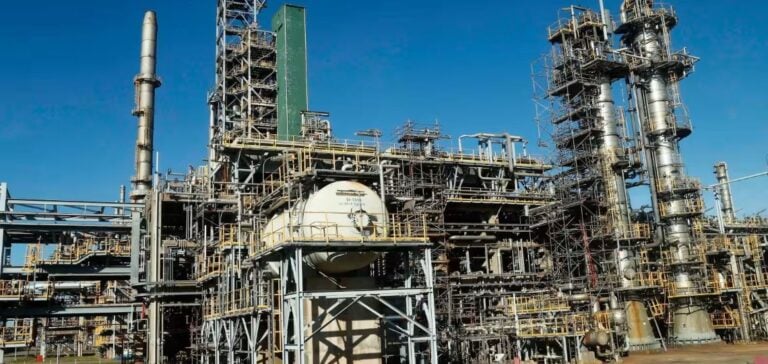Nghi Son Refinery and Petrochemical (NSRP), one of Vietnam’s major refineries, has recently requested government approval to import an additional 1.68 million tons of crude oil from Kuwait, equivalent to around 12.3 million barrels. This request reflects the refinery’s heightened production levels to meet the growing local demand for oil products.
Under current agreements, Vietnam exempts Kuwaiti crude oil imports from taxes up to 10 million tons annually. However, surpassing this limit requires specific authorization. NSRP initially considered sourcing crude from other suppliers to meet demand, but this plan was set aside after Kuwait Petroleum International, which holds a 35.1% stake in the refinery, approved the additional volume of Kuwaiti oil. In addition to Kuwait Petroleum International, the refinery is partially owned by the Vietnamese government (25.1%) as well as Japanese companies Idemitsu Kosan and Mitsui Chemicals.
Increasing Production Capacity
To meet this rising demand, the Nghi Son refinery, which has a processing capacity of 200,000 barrels per day, is considering boosting its capacity by 15 to 20%. This expansion is driven by the Vietnamese domestic market’s significant demand for petroleum products. In the first nine months of the year, Vietnam’s imports of Kuwaiti crude oil for the Nghi Son refinery reached 240,773 barrels per day, a 42.4% increase compared to the same period in 2023.
Energy Independence and Tackling Shortages
Vietnam’s energy sector faced challenges in 2022, including fuel shortages caused by financing difficulties and fixed retail prices. To prevent similar shortages, the country’s two major refineries are now running at full capacity. The Dung Quat refinery, with a capacity of 130,000 barrels per day, is currently operating between 108% and 116% of its capacity, a rate expected to be maintained until 2028.
Together, the Nghi Son and Dung Quat refineries supply about 70% of Vietnam’s demand for petroleum products, with the remainder sourced through imports. In September, Vietnam’s Prime Minister Pham Minh Chinh emphasized the importance of ensuring a stable supply of petroleum products in 2024 to avoid a repeat of the shortages experienced in 2022.
Data on Hydrocarbon Consumption and Production
Vietnam’s consumption of petroleum products in the first eight months of the year reached 18 million cubic meters, a 4% increase compared to the previous year. During this period, the country produced around 13.53 million tons of petroleum products, a 20.3% year-on-year increase. From January to September, Vietnam imported 7.53 million tons of petroleum products, primarily from South Korea, Malaysia, and Singapore, representing a 6.1% decline compared to the previous year.
Efforts to increase national production aim to enhance Vietnam’s energy self-sufficiency, reducing its reliance on imports and bolstering energy security. With 36 Vietnamese companies authorized to supply over 28.44 million cubic meters of petroleum products this year, the government aims to stabilize the domestic market amidst global fluctuations.






















